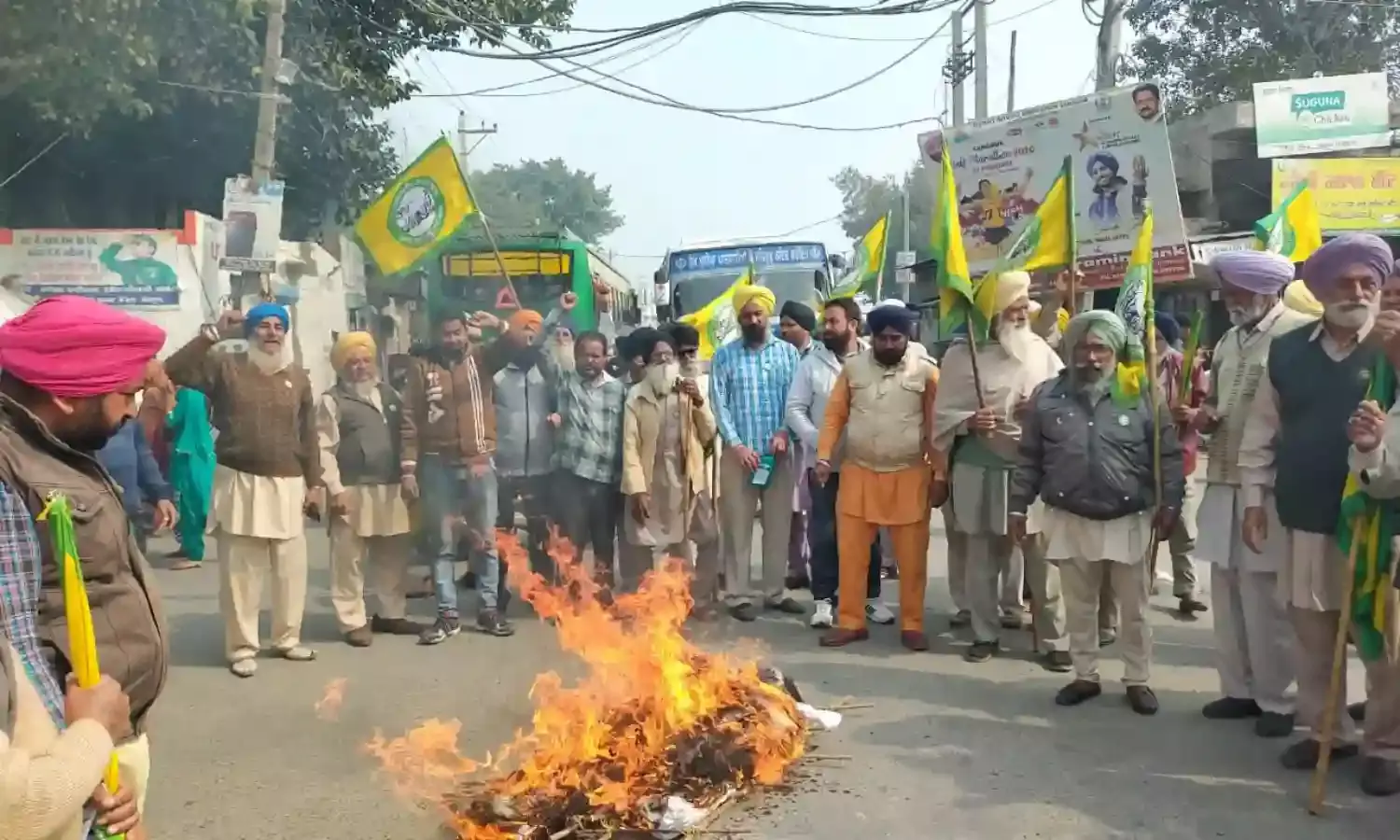Delhi Violence Evokes Memories of 1984, Punjab Reacts
Protests across

CHANDIGARH: The old saying goes ‘Those who forget the past are condemned to repeat it’. If there is one state that has learnt this hard lesson in the Indian context it is the state of Punjab. As the national capital of Delhi has been up in flames with the targeted violence against the Muslims who along with other secular forces have been protesting against the divisive moves of the central government on Citizens Amendment Act (CAA), National Register of Citizens (NRC) and National Population Register (NPR), it is Punjab that has understood the exact connotation of what is going on. And has lost no time in drawing parallels with what had happened with the Sikh population of Delhi in the aftermath of Prime Minister Indira Gandhi’s assassination in 1984.
The concern of Punjabis once again being reflected in the protests that have erupted across the state to protest against the death and arson targeting Muslims in Delhi. Students, farmers, civil society organisations have been protesting ever since news of the violence broke ---in Ludhiana, Jalandhar, Amritsar, Sangrur and several other towns of the sensitive Malwa region.
Protestors here are clear that the violence in Delhi is a repetition of what happened in 1984 against the Sikhs and is an organized attack on the minorities. This sentiment is being reflected in all the protests. There is a unanimous demand for registration of criminal cases against perpetrators of violence and adequate compensation for the families of the victims.
The people are critical of Prime Minister Narendra Modi and Home Minister Amit Shah for being mute spectators while Delhi burned. The anger is being reflected in the daily burning of effigies by the protestors amid angry slogan shouting.
On Thursday, the farmers held a demonstration in Sangrur that was led by Bharatiya Kisan Union (Ugrahan). The agitators burnt effigies of Modi, Shah and central government holding them responsible for the deaths in Delhi violence and torching of houses and business establishments of common people besides burning of mosques. BKU (Ugrahan) leader Gobinder Singh Mangwal came down heavily on the central government for implementing Rashtriya Swayamsevak Sangh (RSS) agenda and targeting minorities. “Anti-social elements backed by the state are attacking members of Muslim community. The government is busy pursuing a divisive agenda trying to make India a Hindu nation. We will continue opposing CAA-NRC-NPR because these moves are against the very spirit of the Indian constitution,” he said.
Veteran political observers like Jagtar Singh have been drawing parallels between the treatment meted out to Muslims in the last few months and what the Sikhs had faced during the 1980s. Poitical observers in Punjab insist that the suspicions being generated against Muslims, their being singled and humiliated and now being targeted are all synonymous with what happened to the Sikhs in the 1980s, whether ahead of the 1982 Asian games or the killings after Indira Gandhi’s assassination.
In his latest lbog, Jagtar Singh has drawn the journey from the1984 ‘Khoon ka badla khoon se lenge’ (We will draw blood for blood) to ‘Desh ke gaddaron ko goli maaron saalon ko’ (Those against the nation should be shot).
“Hate against the Muslims, however, was being built up by the bigots for long. This was the case with the Sikhs too in 1984 when the entire community came to be attacked as ‘terrorists’. The Muslims are confronted now with the same perception. The state institutions succumbed in 1984. The situation is no different in 2020 when not only police in Delhi but several other institutions have already succumbed or showing signs of weakness. The police collaborated with the attackers in 1984. Police personnel have played the same role in 2020 and now everything is on record. Nothing can be denied by the authorities,’ he said.
Dal Khalsa, a group known for practicing radical politics through democratic means has sought Amit Shah’s resignation. Strongly condemning the violence and vicious role of police targeting a particular community, the organization slammed the present day government for making a precious attempt to reduce a political movement to a law and order problem. “This is a gross failure of the entire Indian system comprising a hateful government, a biased bureaucracy and an indifferent justice system,” the party said.
Party leader Kanwarpal Singh said, “Delhi is in flames and it reminds of November 1984, when lumpens let loose terror and mayhem against innocent Sikhs.”
Poet Rajwinder Meer who has been interacting with the rural masses in the malwa belt of Punjab told this reporter, “People are appalled at the government for allowing this to happen in Delhi. Even those who had been speaking for the nationalism portrayed by Modi and Shah after Pulwama terror attack and subsequent strikes on Balakot by Indian forces are now openly condemning the ruling party and its leaders.”
Meanwhile the officiating Jathedar of Akal Takht Giani Harpreet Singh has asked the managements of gurdwaras in Delhi to help victims of violence in all possible ways. He said the gurdwaras must open their doors to the victims and their families irrespective of their religion. “The basic tenet of Sikhism is to help those in distress. Anyone who approaches a gurdwara must be embraced, be it Hindu or Muslim. The gurdwaras are liable to provide them with shelter, food and medical aid. Women and children must be given special care,” he reportedly said.
Meanwhile, the ruling Congress party in Punjab too has echoed public sentiment. Punjab’s Cooperation and Jails Minister Sukhjinder Singh Randhawa while speaking in the state Assembly said the ‘filthy intentions of human rights violators’ would not be tolerated. Saying that the the national capital is in the state of turmoil and killing of humanity daily is ‘disgraceful stigma on democratic and secular fabric’ of the country.



